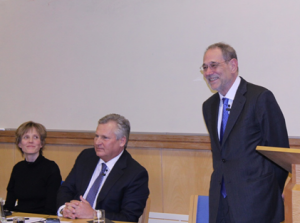
Ukraine and its Place in the World – podcast
Ukraine and its Place in the World - podcast
Play Episode
Pause Episode
Mute/Unmute Episode
Rewind 10 Seconds
1x
Fast Forward 30 seconds
00:00
/
Subscribe
Share
RSS Feed
Share
Link
Embed
Download file | Play in new windowOn 14 March 2014 the Russian and Eurasian Studies Centre at St Antony’s College hosted the 2014 Elliott Lecture: “Ukraine and its Place in the World”. Organised by Dr Paul Chaisty in September of last year, the seminar was intended to explore the implications of the November Vilnius summit and the prospects for the integration of Ukraine into the EU. Given the extraordinary events in the region over the last few months, the focus became Ukrainian territorial integrity. Held on the eve of the referendum in Crimea, the three participants considered the causes of the Ukrainian revolution and the ways in which the outcome of the Crimean referendum is likely to shape regional and international relations over the coming months and years.
Chaired by the Chancellor of the University of Oxford and former European Commissioner Lord Patten, the line-up included two distinguished politicians who have been deeply involved with Ukraine’s integration over many years: former Polish President Aleksander Kwasniewski and former head of NATO, Javier Solana. Dr Gwendolyn Sasse of Nuffield College, Oxford added her expertise on Ukrainian politics, and in particular on the issue of Crimea.

Rare-earth metals: anticipating the new battle for resources
Natural resources are pivotal in international politics. They create patterns of cooperation, dependencies and alter balances of power. The battle for resource is most commonly associated with energy resources such as oil and gas, or base metals indispensible for industries: aluminium, copper, lead, nickel and zinc.
In recent years, China has gained the reputation of a resource-avid country, pursuing deals for resource exploitation to its advantage. In numerous countries across Latin America, Asia or Africa, China has already established long-term deals with governments to obtain access to vital metals or resources.
In light of such narratives and records, a lesser-known fact about the geopolitics of resources has escaped public polemics. This refers to rare earth metals or rare-earth elements (REMs), a set of 17 naturally occurring non-toxic materials, which play a pivotal role for emerging technologies and which are predominantly produced and exported from China.Estimations of China`s hold on the REMs market are as high as 97% of the world production.

Gaza is Israel’s Munich
In September 1938, European statesmen gathered in Munich for a fateful conference. Hitler wanted to annex the Sudetenland, a German-speaking region of Czechoslovakia; Britain and France, desperate to avoid war with Nazi Germany, caved in and granted the Führer’s request. It was hoped that Hitler’s appetite for territorial expansion would be sated: Neville Chamberlain, Britain’s prime minister, proclaimed that the concession had achieved “peace for our time“. Within a year, Hitler had invaded Poland and the Second World War had begun. The policy of appeasement, it appeared, had failed and forever would fail – or so it came to be thought.
As the twentieth century evolved, ‘appeasement’ evolved into a term of abuse that would automatically discredit the granting of concessions to satisfy an opponent. What had previously referred to the pacific settlement of disputes through pragmatic negotiation, argues historian David Dilks, “came to indicate something sinister, the granting from fear or cowardice of unwarranted concessions in order to buy temporary peace at someone else’s expense”. The spectre of Munich came to hang over every international crisis: the Korea, Vietnam, Falklands and Suez wars were all justified in terms of the inevitable failure of appeasement. Most recently, the willingness of the West to allow Crimea to fall to Russia has been denounced as ‘appeasement’, and it is common to hear the crisis spoken of as ‘Obama’s Munich‘.
The 2005 Gaza Disengagement was Israel’s Munich moment: in Israeli discourse, ‘Gaza’ is to ‘unilateral withdrawal’ what ‘Munich’ is to ‘appeasement’. Israel withdrew its army and 8,000 settlers from Gaza Strip; the power vacuum was soon filled by Hamas, and this densely populated coastal strip became a launching pad for thousands of rockets against Israeli civilian areas, provoking two mini-wars.
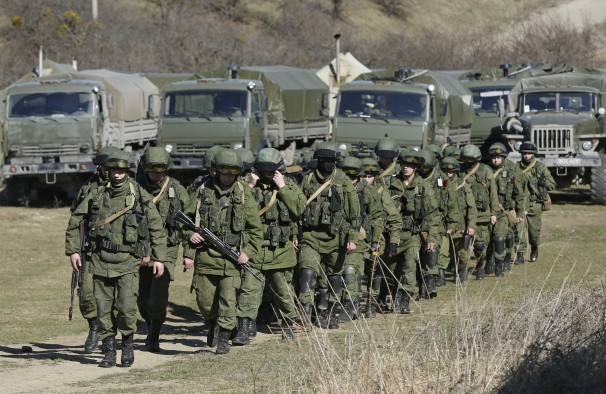
Crimean autonomy: A viable alternative to war?
The issue of Crimean separatism is not new. In the early post-Soviet period it became one of the biggest challenges newly independent Ukraine had to manage. A closer look at the events of the early 1990s and the concept of Crimean autonomy helps to put current events in perspective and points to an alternative to war. A history of fractious multi-ethnicity, a legacy of autonomy experiments, a Soviet-era transfer from the RSFSR to the Ukrainian SSR in 1954, a center-periphery struggle in Ukraine, economic dependence, the tense relationship between Ukraine and Russia, and readily available military resources (in the form of the Black Sea Fleet) account for the complexity of the ‘Crimea question.’ Separatism peaked in 1992-1994, and internal and …
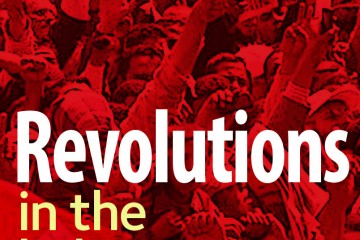
The insecurity of a security state: What can Hannah Arendt tell us about Egypt?
In Egypt, it is clear that constructive results are not going to materialise anytime soon. Increasing state violence, arrests and intimidation have no clear logic beyond an attempt by the security apparatus to regain power and tighten control over the economy. It is an outworn order that risks collapsing.
While the regime does have a serious security issue on its hands, namely the Sinai-based terrorism that has now spread to Cairo, the regime is increasingly blurring the lines between terrorism and anyone who opposes the official line. Labelling the Muslim Brotherhood as a terrorist organisation, outlawing anti-regime protests, cracking down on NGOs and the clampdown against anti-regime activists and journalists are indications that the security state is disintegrating. The regime is carrying out violent measures against Islamists and youth – two major groups that cannot afford to be alienated – signalling the regime’s struggles to control a significant segment of the population via peaceful means.
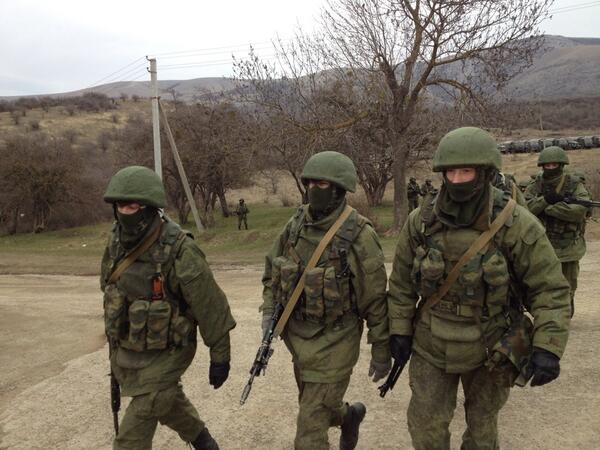
The events of recent days mean that Russia now holds all the cards over the secession of Crimea from Ukraine
The attempt to reassert secession in Crimea cannot be fully understood without locating it within a time frame that dates to the fall of communism in the early 1990s, and without recognising some other relevant key historical factors. This case is a legacy of the international management of secession in the 1990s, in which the EU (or EC as it was then) played a lead role.
The European Community’s “Arbitration Committee” under the chair of French constitutional lawyer Robert Badinter, was set up to give legal opinions on the secessions from Yugoslavia. It restated a number of international norms on secession and established three main principles. First when states were “in dissolution” the decolonising norm of uti possidetis juris would apply, namely, that secession would only be permitted to the next highest administrative entities below the state level. The conclusion was that there could be “no secession within secession” – a decision which excluded Kosovo from legal recognition as a secessionist case.

The Neurochemistry of Power: Implications for Political Change
Power, especially absolute and unchecked power, is intoxicating. Its effects occur at the cellular and neurochemical level. They are manifested behaviourallynin a variety of ways, ranging from heightened cognitive functions to lack of inhibition, poor judgment, extreme narcissism, perverted behaviour, and gruesome cruelty.
The primary neurochemical involved in the reward of power that is known today is dopamine, the same chemical transmitter responsible for producing a sense of pleasure. Power activates the very same reward circuitry in the brain and creates an addictive ‘high’ in much the same way as drug addiction. Like addicts, most people in positions of power will seek to maintain the high they get from power, sometimes at all costs. When withheld, power – like any highly addictive agent – produces cravings at the cellular level that generate strong behavioural opposition to giving it up. In accountable societies, checks and balances exist to avoid the inevitable consequences of power. Yet, in cases where leaders possess absolute and unchecked power, changes in leadership and transitions to more consensus-based rule are unlikely to be smooth. Gradual withdrawal of absolute power is the only way to ensure that someone will be able to accept relinquishing it.
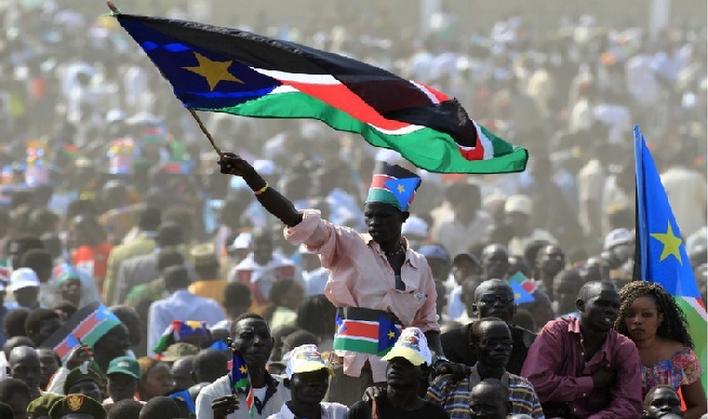
South Sudan: Uganda’s intervention may provoke a regional war
A few days ago, I discussed on Radio France International the collapse of the cease-fire and resumption of open war between the beleaguered South Sudanese government of President Salva Kiir and the rebel forces led by former Vice-President Riek Machar. The violence in South Sudan has since December 2013 claimed the lives of more than 10000 people- a death toll that is rapidly rising as diplomatic efforts have failed to broker a short-term cessation of hostilities, let alone a longer term political solution. The massive intervention of the Ugandan People’s Defence Force (UPDF) with thousands of infantrists, tanks and helicopter gunships has, for the time being, saved President Salva Kiir and the Southern Sudanese capital Juba but risks triggering a wider regional crisis that could see Sudanese and Eritrean involvement and would bring back echoes of the devastating regional wars and proxy conflicts of the 1970s, 1980s and 1990s during which millions of people perished.









